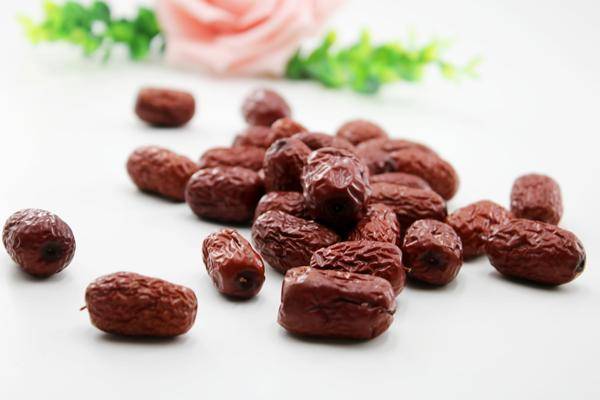Red dates, a fruit with a red color and a sweet taste, has long been regarded as a health-promoting product, known as the “natural vitamin ball.” However, just as everything in the world has two sides, red dates, although good, are not suitable for everyone. For the following four groups of people, eating red dates may not achieve the expected nourishing effects and may instead have adverse effects on health. Let’s see if your shadow is on this “blacklist”?
1. Diabetics
1. High sugar content in red dates
Red dates contain a high amount of fructose, glucose, and sucrose, with a sugar content much higher than regular fruits. For diabetic patients, consuming red dates excessively can lead to rapid increase in blood sugar levels, which is not conducive to blood sugar control.
2. Risk of blood sugar fluctuations
Due to insufficient insulin secretion or the body’s inability to effectively utilize insulin, diabetic patients cannot regulate blood sugar levels properly. Eating a large amount of red dates may cause drastic fluctuations in blood sugar, increasing the risk of hypoglycemia or hyperglycemia and worsening the condition.
3. Risk of diabetic complications
Poor long-term blood sugar control may lead to the occurrence of diabetic complications such as heart disease, kidney disease, eye disease, neuropathy, etc. For diabetic patients, strict control of dietary sugar intake, including limiting the consumption of red dates, is crucial in preventing complications.
2. Patients with digestive system disorders
1. High fiber content in red dates
Red dates are rich in dietary fiber, which helps improve constipation. However, excessive consumption may increase the burden on the digestive system, potentially causing discomfort such as bloating, diarrhea, and stomach pain for patients with digestive system disorders (such as gastritis, gastric ulcers, inflammatory bowel disease, etc.).
2. Stimulates gastric acid secretion
Red dates contain certain organic acids that may stimulate gastric acid secretion. For individuals with excessive stomach acid or gastric ulcers, this may exacerbate stomach discomfort or induce stomach pain.
3. Risk of gastrointestinal bleeding
Some patients with digestive system disorders may have a risk of gastrointestinal bleeding, such as gastritis, gastric ulcers, esophageal varices, etc. Certain components in red dates (such as tannins) may promote blood vessel constriction, increasing the tendency for bleeding.
3. Individuals with allergic tendencies
1. Allergic reactions to red dates
Some individuals may be allergic to red dates, manifesting as skin itching, redness, hives, difficulty breathing, throat swelling, and other allergic reactions. For those known to be allergic to red dates, strict avoidance of consumption is advisable.
2. Cross-reactivity with allergens
Some individuals prone to allergies may have allergic reactions to certain components in red dates. For example, individuals allergic to pollen may experience cross-reactivity with certain proteins in red dates, leading to allergic symptoms.
4. Patients about to undergo surgery or recently discharged
1. Impacts on coagulation function
Red dates contain abundant vitamin C and certain polyphenolic substances, exerting some anticoagulant effects. For patients about to undergo surgery or recently discharged, especially those requiring anticoagulant therapy, excessive consumption of red dates may interfere with coagulation function and increase the risk of bleeding.
2. Drug interactions
Red dates may interact with certain medications, affecting drug efficacy or increasing adverse reactions. Patients taking anticoagulants, hypoglycemic agents, antihypertensive drugs, antibiotics, etc., should adjust their diets under medical guidance to avoid adverse interactions with red dates.
5. Other considerations
1. Moderation
Even for individuals suitable for consuming red dates, moderation is key to prevent nutrient overload or digestive issues. Generally, the daily consumption of red dates should not exceed 10 pieces.
2. Proper storage
Red dates should be stored in a cool, dry place, avoiding direct sunlight and moisture. Once opened, red dates should be sealed to prevent insect infestation and mold growth.
3. Selecting high-quality red dates
When purchasing red dates, choose those with bright color, plump flesh, no infestation, no mold, and no strange odors. Avoid buying red dates that are dull in color, shriveled, infested, moldy, or have a strange odor.
4. Proper combinations
Red dates can be consumed in combination with other foods, such as cooking red date porridge with wolfberries, longan, lotus seeds, white fungus, etc., or steeping red date tea with hawthorn, tangerine peel, licorice, etc., to enhance flavor and nutritional value.
If you belong to any of the above-mentioned groups, you should be cautious in consuming red dates and, if necessary, seek advice from a doctor or nutritionist to develop a suitable dietary plan. Maintaining good lifestyle habits, a balanced diet, and adequate exercise are essential for maintaining health!


